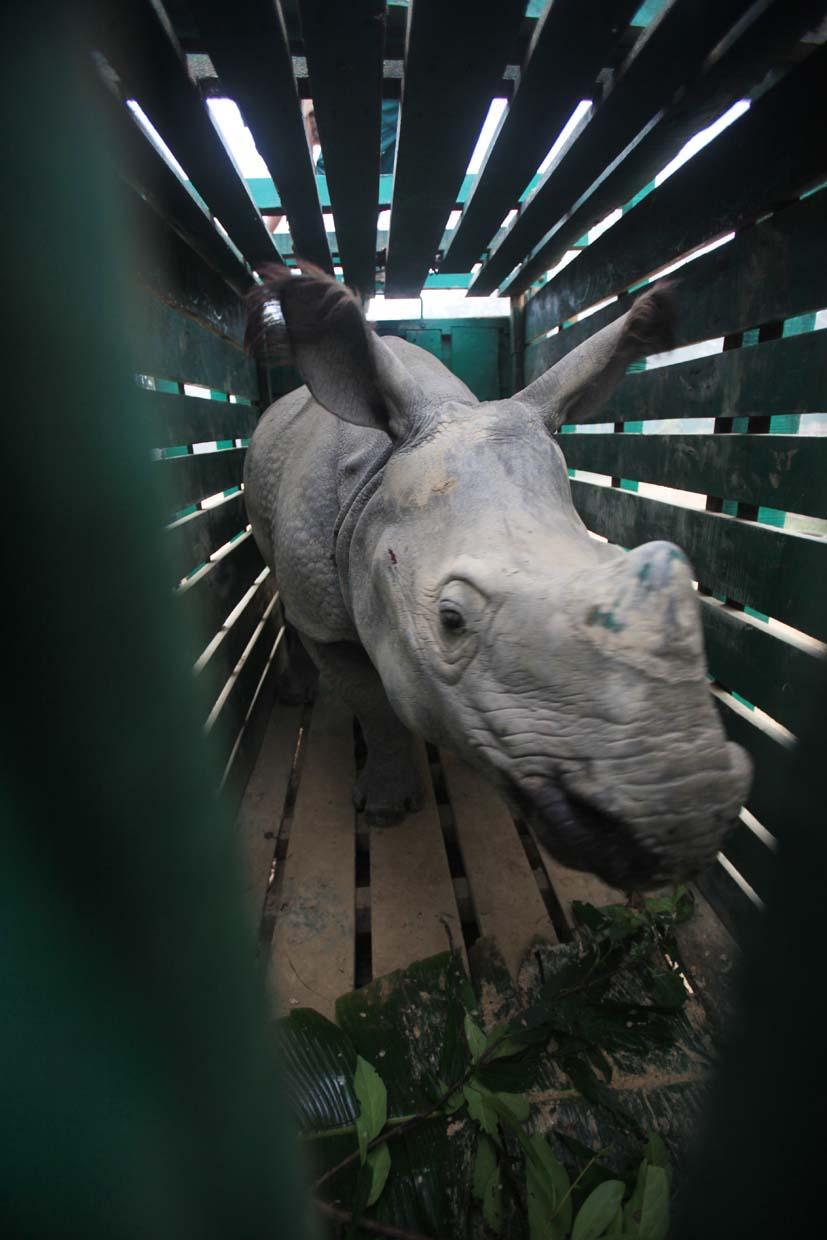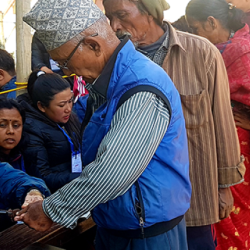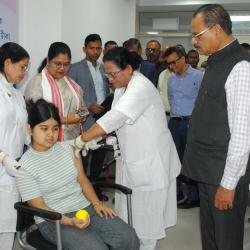Two sub-adult rhinos, Gopal and Hari have been shifted to Manas National Park from the Centre for Wildlife Rehabilitation and Conservation (CWRC), Kaziranga today. The rhinos will be released in the wild following a period of in situ acclimatisation in the UNESCO World Heritage Site. They follow the five rhinos - three females and two males that were hand-reared at CWRC and rehabilitated in Manas since 2006; the three females gave birth last year.
CWRC is a wildlife rehabilitation facility jointly run by Assam Forest Department and International Fund for Animal Welfare - Wildlife Trust of India (IFAW-WTI).
The two rhinos moved today - Gopal and Hari, both male, were less than a month old when they were found alone on 13th March and 21st August of 2009 at Baruntika and Haldhibari areas of Kaziranga respectively. They were separated from their mother; the reason for separation is not known. They were admitted at CWRC for rehabilitation. Following the proven rhino rehabilitation protocol of CWRC, they were hand-reared at CWRC. Both are about four years old now.
Apart from Gopal and Hari, and the five already released in Manas, there are five additional calves currently being hand-reared by IFAW-WTI - three at CWRC and two in Manas.
"In India, CWRC is the only such facility through which rescued rhinos are being rehabilitated in the wild again. Three of the rehabilitated rhinos have become mother in the wild and has proved the protocol correct. We hope these male rhinos too will bring new gene in Manas rhino population", said MK Yadava, Chief Conservator of Forest and Director - Kaziranga National Park and Project Leader, CWRC.
"Last year we celebrated the birth of three calves by three female rhinos that we rehabilitated in Manas since 2006. We are extremely happy that two more of these rhinos, which arrived at CWRC as young calves and were raised by our team there, are now ready to take the step towards returning to the wild," said Vivek Menon, Executive Director, WTI and Regional Director - South Asia, IFAW.
Dr Rathin Barman, Deputy Director, WTI and In-charge CWRC said "CWRC is committed for conservation of wildlife of Assam and we shall continue our effort for securing future of Assam's State animal. Personally I am happy to be associated with rhino rehabilitation programme since beginning."
During the 400 km journey to Manas, the rhinos were escorted by four IFAW-WTI veterinarians led by Dr Anjan Talukdar and Dr Abhijit Bhawal assisted by Dr Jahan Ahmed and Dr Biswajit Barua. They were accompanied by CWRC animal keepers Tarun Gogoi and Raju Kutum who had been taking care of the rhinos at the centre.
- 5302 reads










Add new comment